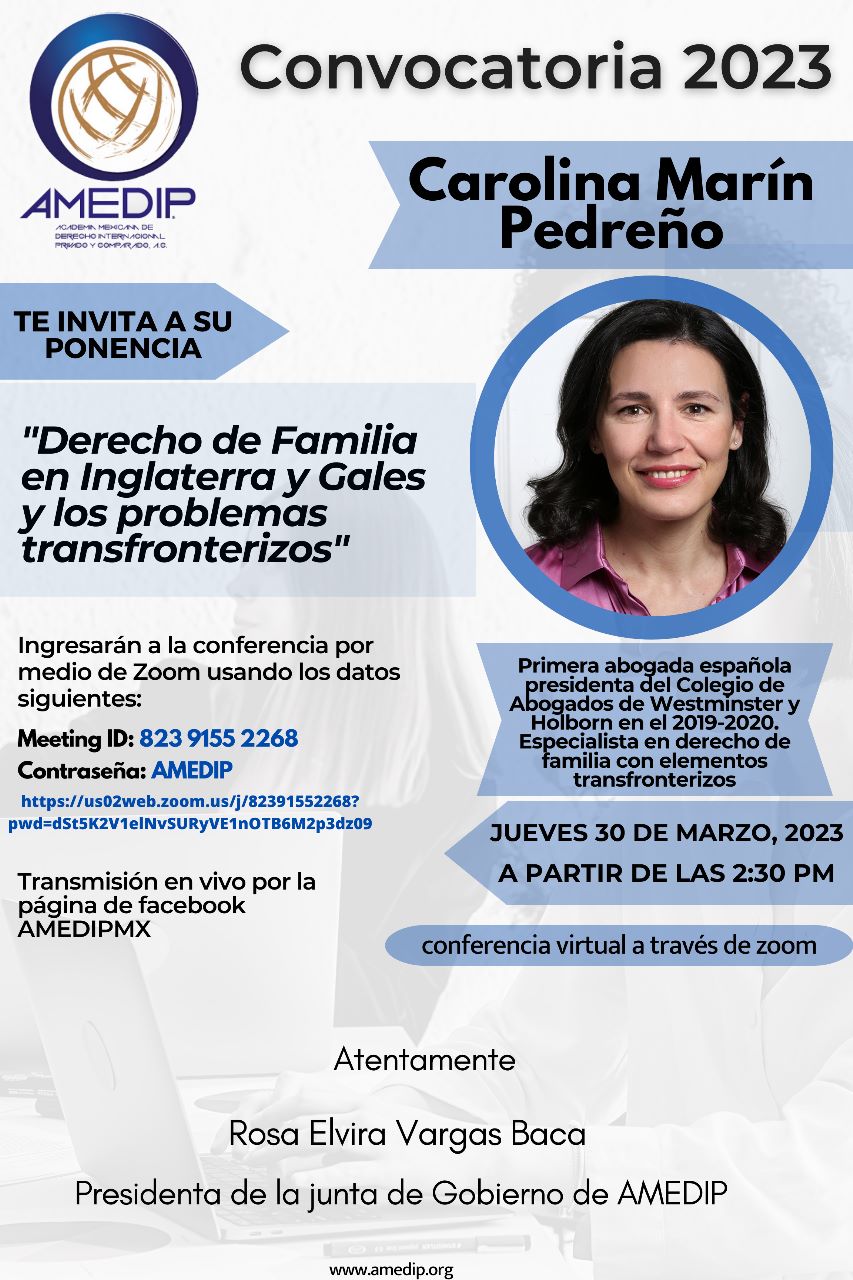Dicey, Morris & Collins on the Conflict of Laws
The latest edition of Dicey, Morris & Collins on the Conflict of Laws, jointly edited by The Rt Hon. the Lord Collins of Mapesbury and Professor Jonathan Harris KC (Hon.), was published by Sweet & Maxwell in September 2022. First published in 1896, Dicey, Morris & Collins on the Conflict of Laws is in its 16th edition. The publisher provides the following description for this pre-eminent treatise on private international law.
-
- Explains the rules, principles and practice that determine how the law of England and Wales relates to other legal systems.
- Volume 1 deals with general principles the effects of the withdrawal by the United Kingdom from the European Union, foreign affairs law, protective measures and international judicial cooperation, jurisdiction of English courts, recognition and enforcement of foreign judgments and international arbitration.
- Volume 2 covers family law, property law, succession and trusts, corporations and bankruptcy, contracts, torts, unjust enrichment and equitable claims, and foreign currency obligations.
- Includes a new Part containing detailed analysis of Foreign Affairs and the Conflict of Laws, including expanded coverage of important developments in this area.
- Includes detailed treatment of the Hague Convention on Choice of Court Agreements 2005.
- Family law coverage includes important developments in respect of same-sex marriages, civil partnerships and surrogacy.
- A Companion Volume explains in detail the transitional provisions relating to the withdrawal by the United Kingdom from the European Union and the relevant EU legislation in areas where those transitional issues will remain relevant for the foreseeable future, including on lis pendens, recognition and enforcement of foreign judgments, family law and insolvency.
-
- Full analysis of the effects of the withdrawal by the United Kingdom from the European Union.
- Detailed coverage of the Hague Convention on Choice of Court Agreements 2005.
- Analysis of domestic legislation, including the Private International Law (Implementation of Agreements) Act 2020, important amendments to the Civil Jurisdiction and Judgments Act 1982 and a number of key statutory instruments.
- A new Part containing detailed analysis of Foreign Affairs and the Conflict of Laws, including expanded coverage of important developments in this area.
- Covers important developments in family law, including in respect of same-sex marriages, civil partnerships and surrogacy.
- Detailed analysis of the many decisions of the Supreme Court, Privy Council, Court of Appeal and High Court and in other parts of the United Kingdom, Commonwealth and other jurisdictions.
Further information is available here.


 if not before, the interplay between the international jurisdiction of national courts and arbitral tribunals has been subject to a constant stream of publications. Writing a monograph on this topic that is both fundamental and innovative in this field is therefore no small feat – making this book by Faidon Varesis, which has come out at the beginning of the year and is based on
if not before, the interplay between the international jurisdiction of national courts and arbitral tribunals has been subject to a constant stream of publications. Writing a monograph on this topic that is both fundamental and innovative in this field is therefore no small feat – making this book by Faidon Varesis, which has come out at the beginning of the year and is based on